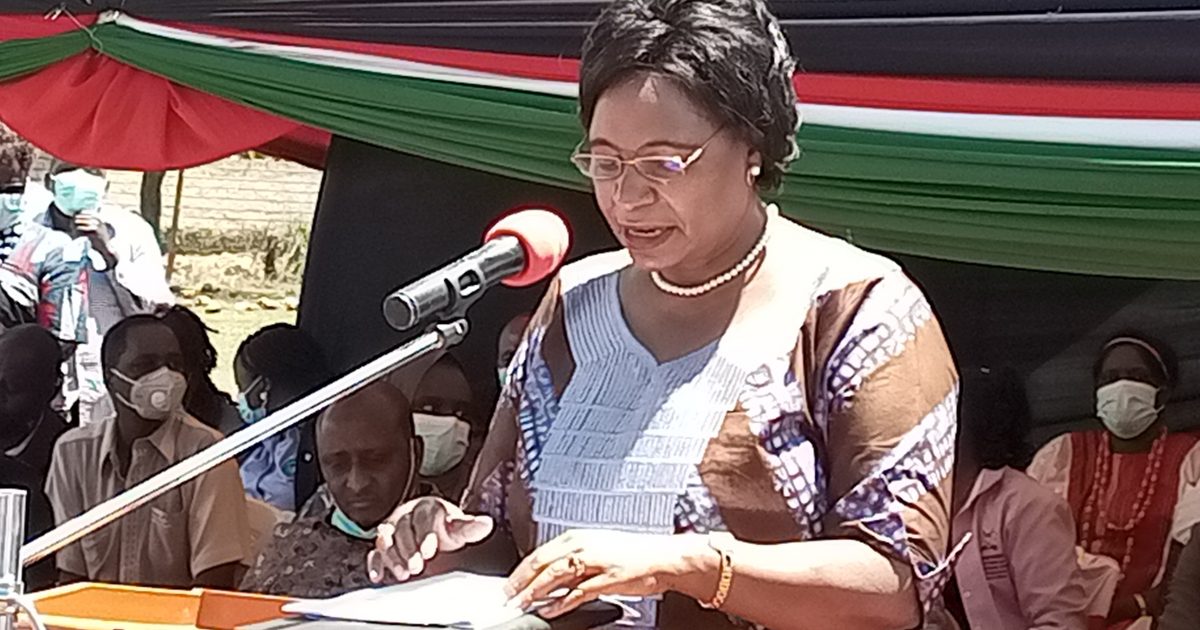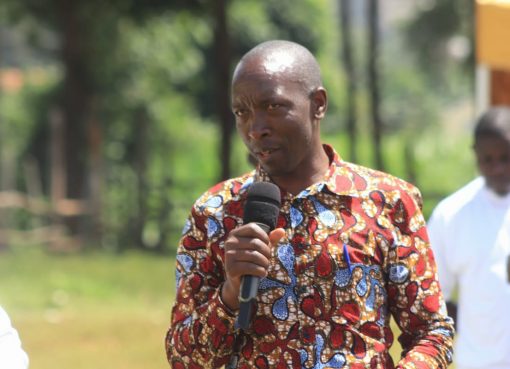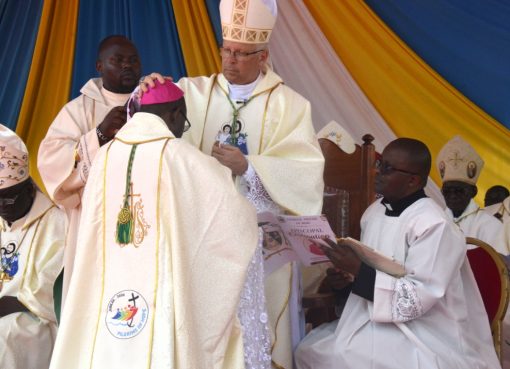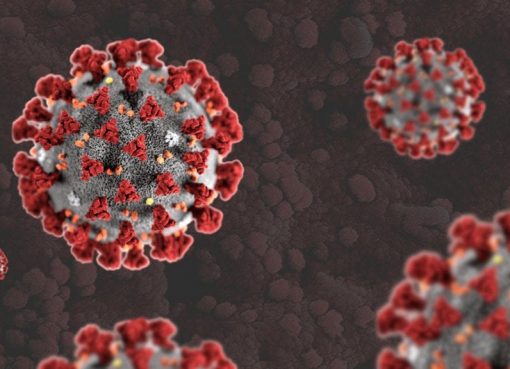Women in the country have been challenged to vie for leadership positions in all fields of influence.
Speakers during the marking of the 21st anniversary of the United Nations’ Security Council Resolutions (UNSR- 1325) called upon the women to rise up and fight for leadership positions from the grassroots to the highest office in the land and globally.
The leaders said women have all it takes to contest seats and should desist from shying away from such opportunities.
The celebrations were held at the Isiolo Police Grounds with a host of women leaders from the region participating.
The resolutions that were adopted in October 2000 are geared towards urging all actors to increase the participation of Women and additionally incorporate gender perspectives in all United Nations’ peace and security efforts.
The event was graced by the Cabinet Secretary in the Ministry of Public Service, Gender, Senior Citizens Affairs and Special Programmes Prof. Margaret Kobia, the UN Women Country Director Ms. Anna Mutavati, Chief Administrative Secretaries Linah Jebii Kilimo (public service and gender) and Mumina Bonaya education.
Others included the Principal Secretary in the State Department of Gender Prof. Collette Suda and the Chief of Party for the REINVENT Programme Ms. Jackie Mbogo who all challenged Women in Kenya to stand and be counted by assuming leadership positions as the nation prepares for the General Elections next year.
Prof. Kobia said that Women in Kenya had every reason to celebrate the landmark resolutions that reaffirmed the role of Women in Peace and Security 21 years ago, since they remain relevant and a reality in the lives of women and girls.
She argued that the clamor for gender equality should not be interpreted to mean that women want to become men since all that women want is equal opportunities in education and all other spheres of life.
The CS questioned why only a handful of women especially in pastoralist communities have been incorporated in peace and security committees despite the UNSR 1325 resolutions being effective for 21 years now, and acknowledged the need to have ‘Nyumba Kumi’ and other strategic development committees incorporate at least a third of women.
UN Women Country Director Ms. Anna Mutavati said that through creation of the UNSR 1325, the United Nations Security Council formally acknowledged the changing nature of warfare in which civilians are increasingly targeted, with women and children increasingly bearing the brunt of conflicts.
According to Ms. Mutavati, the resolution specifically addressed how women and girls are disproportionately impacted by violent conflict and war, and recognizes the critical role that Women can and already do play in peace building efforts.
She stated that peace and security efforts are more sustainable if women are equal partners in the prevention of violent conflicts and the delivery of relief and recovery efforts in the forging of lasting peace.
The Chief Administrative Secretary in the Ministry of Education Mumina Bonaya lamented that even during preparations for the upcoming election, women from pastoralist communities are continually excluded from key decision making forums, where elders (men) sit and decide who is elected for various positions through a formula popularly referred to as ‘negotiated democracy.’
Ms. Mumina reiterated that men are now holding sittings to decide who occupies even the position of Women Representative, completely watering down the gains brought about by the Constitution of Kenya 2010 and also the UNSR 1325 resolutions which uphold the place of women in the society.
Isiolo County Secretary Dr. Ahmed Galgalo said that in the pastoral set up, frequent conflicts witnessed among various communities especially due to cattle rustling led to women suffering most with some becoming widows and orphaned children.
He challenged the women folk to take the lead in the fight against such traditions that are retrogressive in the region.
Galgalo said that morans have over the years been hailed as heroes after conducting raids, killing and bringing home stolen animals, a trend that he noted must be stopped by the women taking the lead in that venture.
Isiolo Inter-faith Group Chairman Sheikh Ahmed Sett urged all the organizations championing the women’s involvement in decision making to also incorporate the men folk so that their agenda could get adequate support.
He said the Borana community was now turning to the men and tribal chiefs in intervention to stop the Female Genital Mutilation (FGM) and a memorandum of understanding (MOU) has been signed by the ‘Abagatha’ – the Borana tribal king who is based in Ethiopia to support the effort.
By David Nduro





